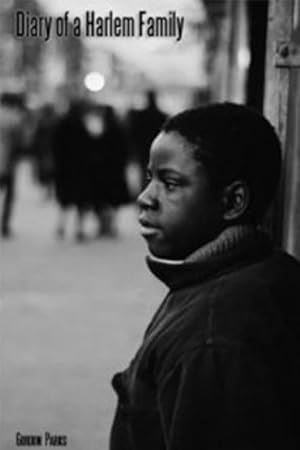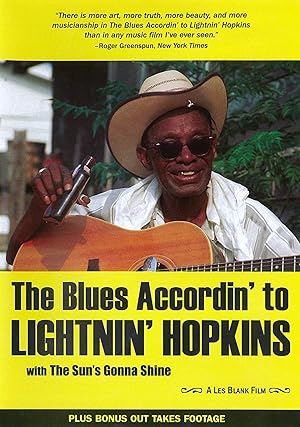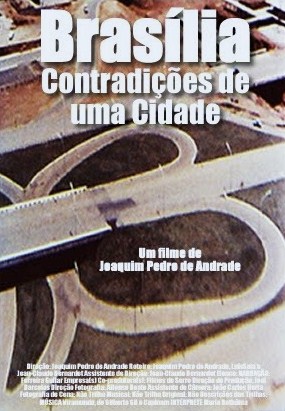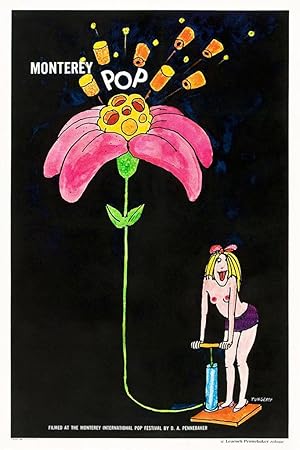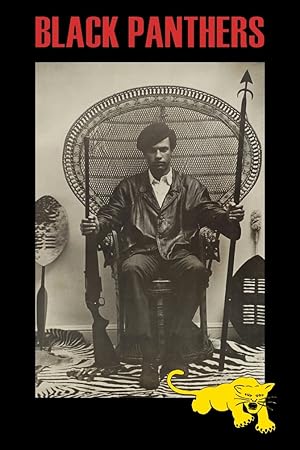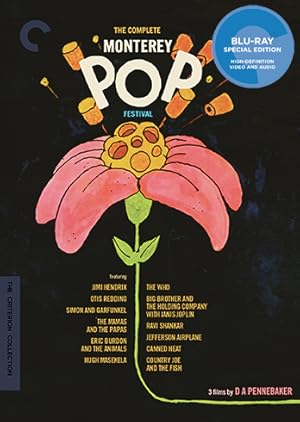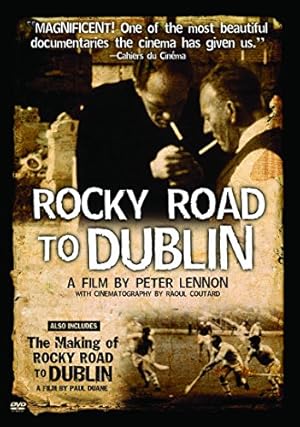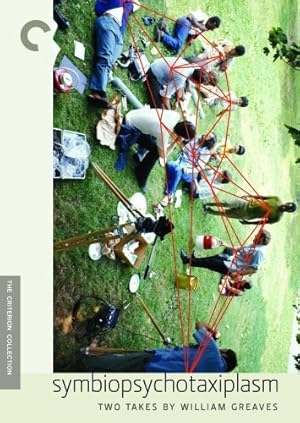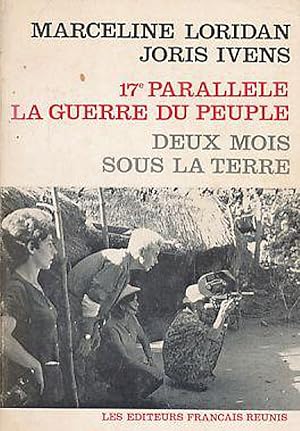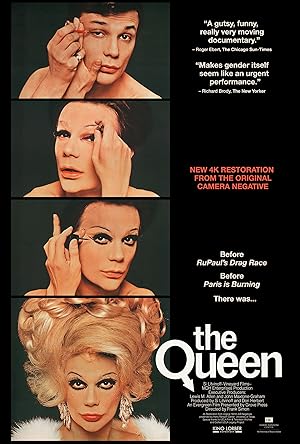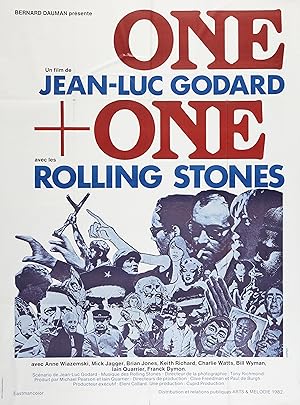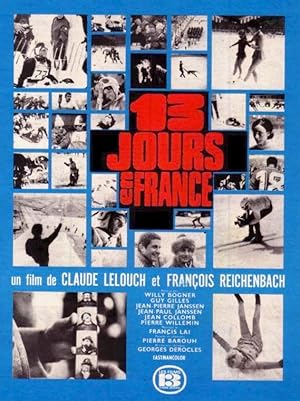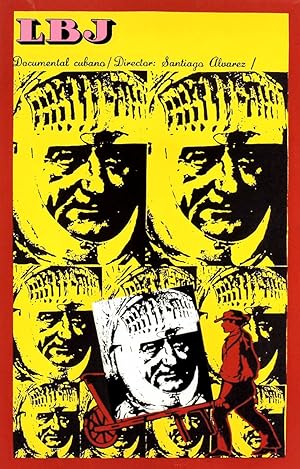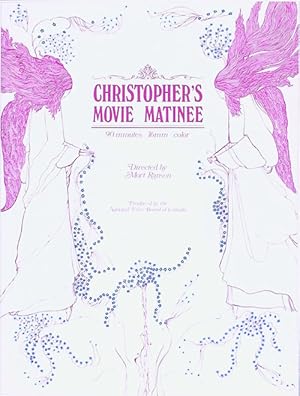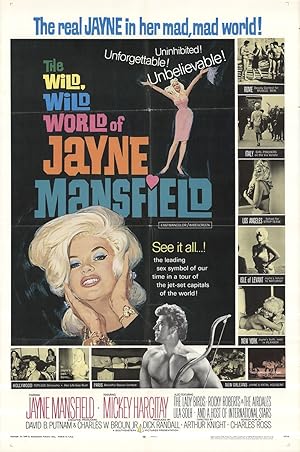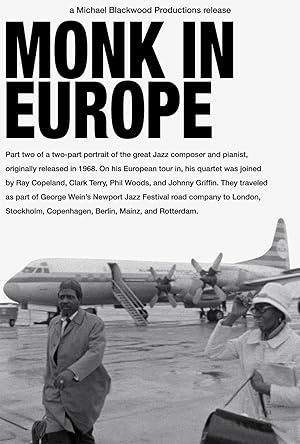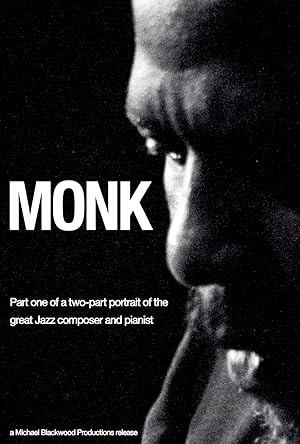Top Documentary Movies of 1968 Online
Explore the world around you with the best documentary movies of 1968 online. From thought-provoking stories to groundbreaking explorations, these films offer unique insights into real-life events and issues. Watch the top documentary movies of 1968 online and expand your knowledge with captivating true stories.
Diary of a Harlem Family (1968)
0
Presents Gordon Parks' photo-essay "A Harlem Family", framed by a filmed segment featuring Parks and the Fontanelle family and narrated by Parks.
The Blues Accordin' to Lightnin' Hopkins (1968)
0
Les Blank's portrait of the great Texas bluesman, 'Lightnin' Hopkins. The film includes interviews and a performance by Hopkins. Preserved by the Academy Film Archive in 2002.
Brasilia, Contradictions of a New City (1968)
0
In 1967, de Andrade was invited by the Italian company Olivetti to produce a documentary on the new Brazilian capital city of Brasília. Constructed during the latter half of the 1950s and founded in 1960, the city was part of an effort to populate Brazil’s vast interior region and was to be the embodiment of democratic urban planning, free from the class divisions and inequalities that characterize so many metropolises. Unsurprisingly, Brasília, Contradições de uma Cidade Nova (Brasília, Contradictions of a New City, 1968) revealed Brasília to be utopic only for the wealthy, replicating the same social problems present in every Brazilian
Monterey Pop (1968)
0
Featuring performances by popular artists of the 1960s, this concert film highlights the music of the 1967 California festival. Although not all musicians who performed at the Monterey Pop Festival are on film, some of the notable acts include the Mamas and the Papas, Simon & Garfunkel, Jefferson Airplane, the Who, Otis Redding, and the Jimi Hendrix Experience. Hendrix's post-performance antics -- lighting a guitar on fire, breaking it and tossing a part into the audience -- are captured.
Black Panthers (1968)
0
A film shot during the summer of 1968 in Oakland, California around the meetings organised by the Black Panthers Party to free Huey Newton, one of their leaders, and to turn his trial into a political debate. They tried and succeeded in catching America’s attention.
Chiefs (1968)
0
Filmed at the October 1968 meeting in Hawaii of several hundred police chiefs of the International Association of Chiefs of Police as they watch demonstrations of gruesome anti-riot weapons, sing patriotic songs, and defend their policies in front of the camera. Although filmed with the permission of the chiefs, the view is unsympathetic, sometimes funny, and more often frightening.
Rocky Road to Dublin (1968)
0
Irish-born journalist Peter Lennon examines the contemporary (1967) state of the Republic of Ireland, posing the question, “What do you do with your revolution once you’ve got it?” It argues that Ireland was dominated by cultural isolationism, Gaelic and clerical traditionalism at the time of its making.
Symbiopsychotaxiplasm (1968)
0
In Manhattan's Central Park, a film crew directed by William Greaves is shooting a screen test with various pairs of actors. It's a confrontation between a couple: he demands to know what's wrong, she challenges his sexual orientation. Cameras shoot the exchange, and another camera records Greaves and his crew. Sometimes we watch the crew discussing this scene, its language, and the process of making a movie. Is there such a thing as natural language? Are all things related to sex? The camera records distractions - a woman rides horseback past them; a garrulous homeless vet who sleeps in the park chats them up. What's the nature of making a
The 17th Parallel (1968)
0
On the border of North and South Vietnam, civilians live underground and cultivate their land in the dead of night, farmers take up arms, and bombs fall like clockwork. Joris Ivens and Marceline Loridan’s record of daily life in one of the most volatile regions of a war-torn, divided country is both a hazardous piece of first-hand journalism and a shattering work in its own right, simmering with barely repressed anger.
The Queen (1968)
0
In 1967, New York City is host to the Miss All-American Camp Beauty Pageant. This documentary takes a look behind the scenes, transporting the viewer into rehearsals and dressing rooms as the drag queen subculture prepares for this big national beauty contest. Jack/Sabrina is the mistress of ceremonies, and their protégé, Miss Harlow, is in the competition. But, as the pageant approaches, the glamorous contestants veer from camaraderie to tension.
Sympathy for the Devil (1968)
1
While The Rolling Stones rehearse "Sympathy for the Devil" in the studio, an alternating narrative reflects on 1968 society, politics and culture through five different vignettes.
13 Days in France (1968)
0
This colorful documentary chronicles the events of the 1968 Winter Olympics in France. The events made international celebrities of skater Peggy Fleming and skier Jean-Claude Killy for their gold-medal performances. The camera accurately catches the speed of bobsleds and downhill racers and ski jumpers as they race for the gold. President Charles DeGaulle is shown observing the action over 13 days, which saw France earn the best performance to date in the winter games.
LBJ (1968)
0
This is a montage of different images from the JFK, Martin Luther King and Bobby Kennedy triumphs and assassinations, all three events being observed by Lyndon Johnson as the dark figure who is plotting the anti-black rights movement.
Christopher's Movie Matinee (1968)
0
When a camera crew are sent to document hippie protests in Yorkville, Canada's counter-culture capital, they are charmed by a group of misunderstood kids with their own ideas about what kind of movie to make.
The Wild, Wild World of Jayne Mansfield (1968)
0
Jayne takes us on a review of her last world tour. She takes us through Rome, shares a fantasy about Roman athletes, and then is off to Cannes. She takes a trip to the nudist colony on the Isle of Levant, where she almost kind of joins in. Then it's off to Paris, where she gets a beauty treatment from Fernand Aubrey, and attends some racy dance revues. In New York and Los Angeles, she visits some topless clubs and listens to a topless all-girl pop band. The film wraps up with some posthumous footage of her family in mourning.
Monk in Europe (1968)
0
Part two of a two-part portrait of the great Jazz composer and pianist. On his European tour his quartet was joined by Ray Copeland, Clark Terry, Phil Woods, and Johnny Griffin. They traveled as part of George Wein’s Newport Jazz Festival road company to London, Stockholm, Copenhagen, Berlin, Mainz, and Rotterdam.
Monk (1968)
0
Part one of a two-part portrait of the great Jazz composer and pianist. In 1968, we had the opportunity to spend time with Thelonious Monk and his musicians, following him in New York and Atlanta. In New York his quartet plays at the Village Vanguard and at recording sessions for Columbia Records; in Atlanta they appear at a Jazz Festival organized by George Wein. The members of the quartet were Charlie Rouse, Larry Gales, and Ben Riley.
